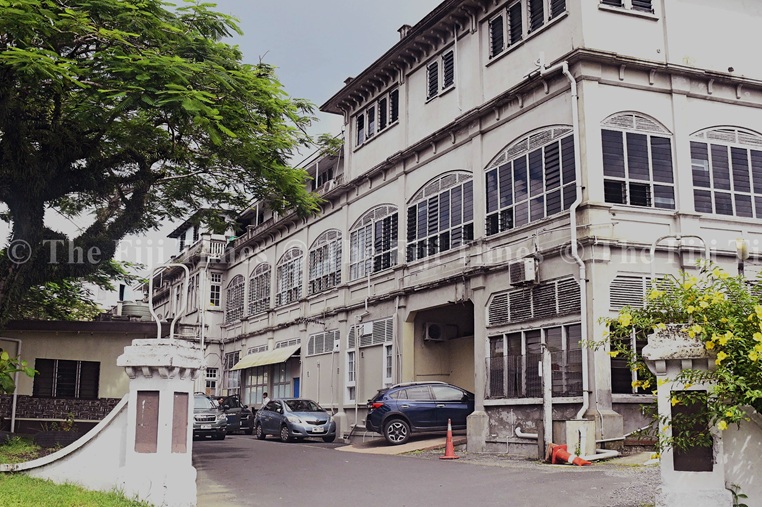The current state of the century-old Colonial War Memorial Hospital (CWMH) and its viability has been a hot topic of discussion and debate in Fiji.
Key areas of discussion include it’s deteriorating state, overcrowding, lack of specialised healthcare services, staffing shortages, quality of care, infection and disease control, among others.
With 25 separate buildings, CWMH is the largest referral hospital in Fiji and the challenges it faces is affecting the health services received by the people when visiting the hospital.
Over the years, millions of dollars have been allocated to CWMH for either renovation, refurbishment, or extension purposes. Going over the budget summaries for the past decade, $50million was set aside specifically by the Fiji Government for CWMH.
In 2015, Government pledged $20m for the next four years for the extension of the CWMH Maternity Unit. In the 2018-2019 and the 2019-2020 budgets, an additional $15m was allocated for this purpose and between 2020 and 2022, $10.5m was allocated for the construction of a new maternity unit.
In 2018, Government announced its plans to modernise Fiji’s health system and in January 2019 it signed a Public Private Partnership (PPP) agreement with Aspen Medical, a privately-owned Australian based health service company.
Through this PPP, Aspen was to “develop, finance, upgrade, operate and maintain” the Lautoka and Ba hospitals.
Since 2019, government has been paying about $10m per month to Health Care (Fiji) Pte Ltd, the company formed as part of the PPP and is jointly owned by the Fiji National Provident Fund (FNPF) and Aspen Medical. The $10m, which amounts to $120m per year, was to compensate for the free access to health services at the Lautoka and Ba hospitals. This accounts for one fifth of the Health Ministry’s annual budget, according to deputy Prime Minister Professor Biman Prasad.
Many healthcare critics have questioned the exorbitant funds being paid to Health Care Fiji Pte Ltd when compared with the amount allocated to CWMH.
A CWM Hospital priority Infrastructure Plan report compiled by Johnstaff International Development, through the support of the Ministry of Health and Australian Aid, stated that CWMH “has suffered from decades of under-investment and deffered maintenance”.
“As a result, much of the existing infrastructure on the campus is at or near end of life. This status is impacting the ability of the clinical teams at CWM Hospital, and more generally the Ministry of Health and Medical Services (MHMS), to effectively deliver quality of care that responds to increasing disease burden facing the Fiji population, especially with regard to non communicable diseases (NCDs),” the report said.
Renowned cardiologist, Dr Vijay Kapadia, who has made significant contributions to not only Fiji, but the region in terms of heart care, has questioned the significant financial commitment involved in the PPP arrangement.
“This Government has taken things by the head, in a way. They’ve involved the Australian High Commission and now we’re putting CWM to where it belongs. But why? Why wasn’t that done in the first place ?” Mr Kapadia said.
“If you start talking about Lautoka and other places, you don’t understand healthcare. I don’t support CWMH because I grew up next to it. That is the centrality of tertiary healthcare in this country, or healthcare education in this country.
“So when you’re going to siphon one fifth of the health budget to two hospitals, how can you look after CWMH?”
He said justification needed to be given to the people of Fiji on why there was a need to set up a PPP when the money could have gone to bettering the current services provided at CWMH and the facilities thereon.
“I just feel that Fiji should find out what was the basis for it. I’m not against any company. My concerns are about the public, private partnership. Is it really necessary for Fiji?”
Overall, there’s been calls made for sustained actions and accountability.
The debate surrounding the PPP for the Aspen-operated Lautoka and Ba hospitals illustrates the need to prioritise CWMH’s redevelopment, ensuring that it continues to serve as a central hub for tertiary healthcare in Fiji.
The long-term viability of CWMH hinges on sustained investment, strategic planning and transparent decision-making.
- In next week’s In-depth edition, we will look into how the current challenges are impacting both workers and patients alike, and we’ll shed light on the human-interest stories behind the statistics.



